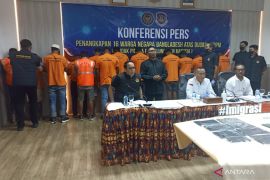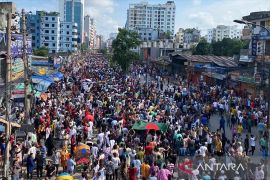Scores of senior military officers were killed in the 33-hour uprising that began when soldiers at the Bangladeshi Rifles (BDR) headquarters in Dhaka went on a killing spree, later dumping the bodies in sewers and shallow graves.
The mutiny swiftly spread to BDR posts outside Dhaka and across the country, with thousands of guards taking up arms against their commanding officers in the worst military rebellion in Bangladesh`s history.
Dozens of special courts -- run by the military using a mix of martial and civil law -- were set up to prosecute mutineers, with the first verdict convicting 29 soldiers being handed down in April, 2010.
A Dhaka-based special court convicted 84 people on Tuesday.
"Of the 2,147 guards who have now been tried, 63 have been acquitted and 2,084 jailed," military spokesman Mohsin Reza told AFP.
A further 3,899 guards are still awaiting trial, he added.
The special courts, which do not allow defendants to have lawyers, can hand down maximum sentences of seven years in jail. There is no right of appeal.
Soldiers accused of more serious offences -- including murder, looting and arson -- are being tried separately in Bangladesh`s civilian courts, and can face the death penalty if convicted.
The BDR has since changed its name to the Bangladesh Border Guards in an effort to distance itself from the mutiny. (S008/K004)
Editor: Kunto Wibisono
Copyright © ANTARA 2011











